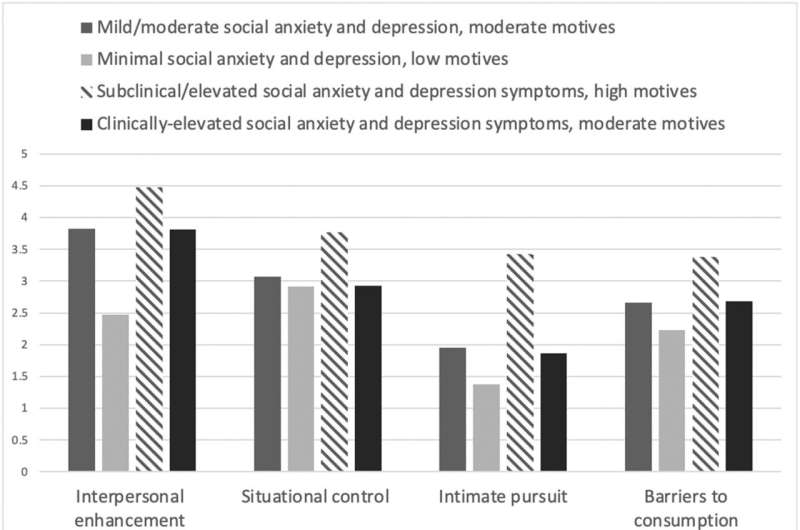This article has been reviewed according to Science X's editorial process and policies. Editors have highlighted the following attributes while ensuring the content's credibility:
fact-checked
trusted source
proofread
Social anxiety, depression linked to more negative alcohol-related consequences from 'pre-gaming'

College students with social anxiety may be driven by social motives to "pre-game," meaning drink prior to a party or event. Simultaneously, students with co-occurring social anxiety and depression also experience more negative consequences, like blackouts, from their alcohol use, according to a study published in Alcohol: Clinical and Experimental Research.
The study authors recommend efforts to help students address mental health issues and their motivations for drinking before social events to prevent the harms associated with pregaming.
Pregaming, sometimes called frontloading or pre-partying, is common among college students and involves drinking prior to a social event, typically where more drinking will take place. It often leads to heavier drinking on days when students pre-game and puts students at a higher risk of academic and interpersonal problems, injury, sexual or physical assault, driving while intoxicated, and blacking out.
For this study, researchers examined how college students' mental health and motivations for pre-gaming were associated with pre-gaming drinking behaviors and related negative consequences, including blackouts. Five hundred college students completed self-assessments of social anxiety, depression, and motivations for pre-gaming, which included to meet new friends, "hook up," control the kind of alcohol they drink, and because they may not be able to drink at the subsequent event. Based on their responses, they were grouped into one of four profiles.
Of the participants, 59% were categorized as having mild to moderate social anxiety and depression symptoms and moderately motivated to pregame, 13% were categorized as having minimal social anxiety and depression symptoms and low pregaming motivations, 16% had subclinical/elevated social anxiety and depression symptoms and high pregaming motives, and 12% had clinically elevated social anxiety and depression symptoms with moderate motives.
The subclinical/elevated social anxiety and depression symptoms profile reported the highest frequency of pregaming and the highest number of past-month drinking-related consequences. They reported an average of three and a half alcohol-induced blackouts in the prior 30 days, significantly more than any other group. This group also reported more motivations for pregaming than any group, particularly for social motivations.
The group assessed to have minimal social anxiety and depression symptoms had significantly lower calculated blood alcohol levels and reported the fewest alcohol-related consequences of all the groups. This profile still attained risky blood alcohol levels and reported five drinking-related consequences in the past month.
The group with clinically elevated social anxiety and depression symptoms reported the second fewest consequences of the four groups.
Participants in the mobile phone-based study were full-time undergraduate students at a single, large, private U.S. university who had reported pre-gaming at least once a week for the prior month. The sample was predominantly white, cisgender, and female. Participants reported high levels of alcohol use, were primarily a socially motivated sample, and thus were likely not fully representative of students with clinically high levels of social anxiety and depression.
The researchers suggest that social anxiety and social motivation put students at greater risk from pregaming and recommend the exploration of mental health and drinking motivations as targets for intervention in heavy drinking populations.
More information: Reagan E. Fitzke et al, A latent profile analysis of social anxiety, depression, and pregaming motives among heavy‐drinking college students, Alcohol: Clinical and Experimental Research (2024). DOI: 10.1111/acer.15221




















